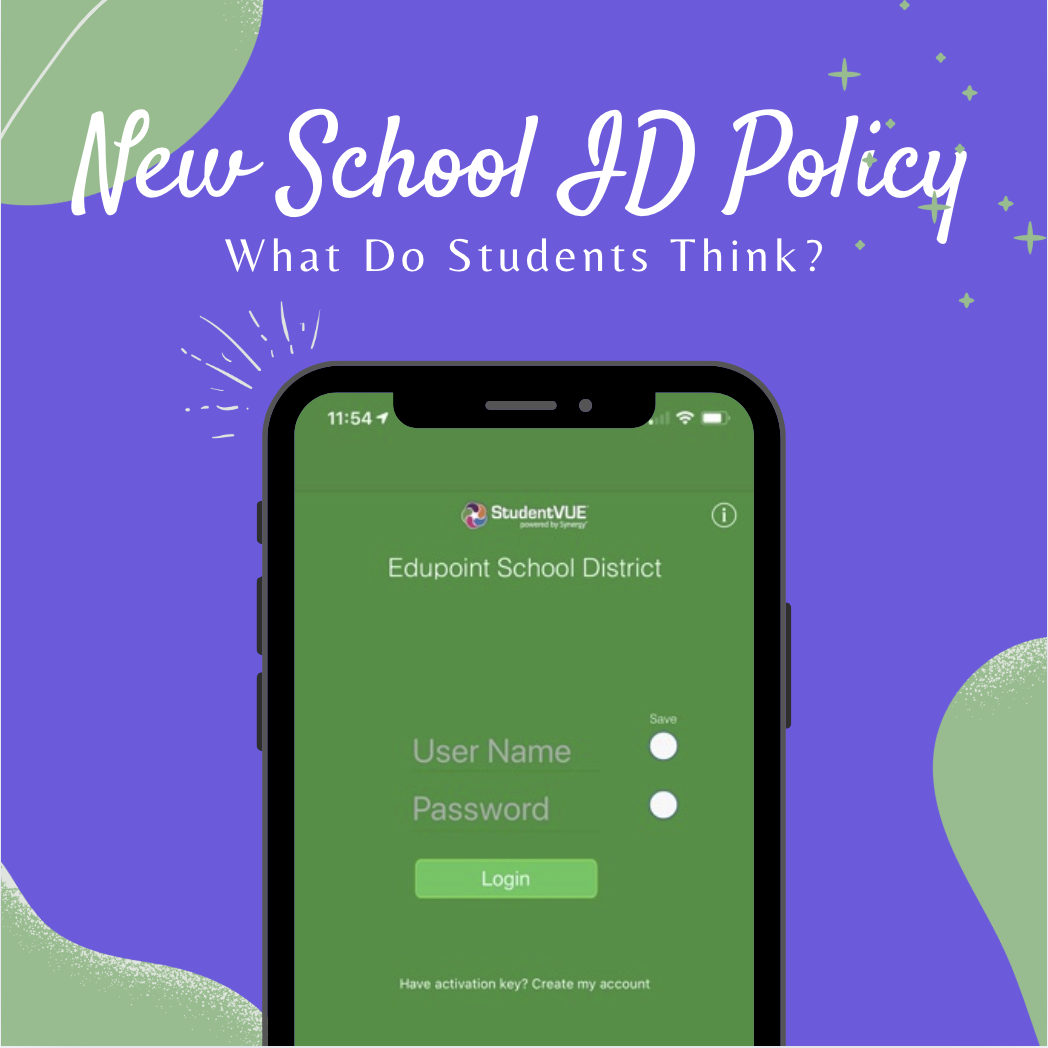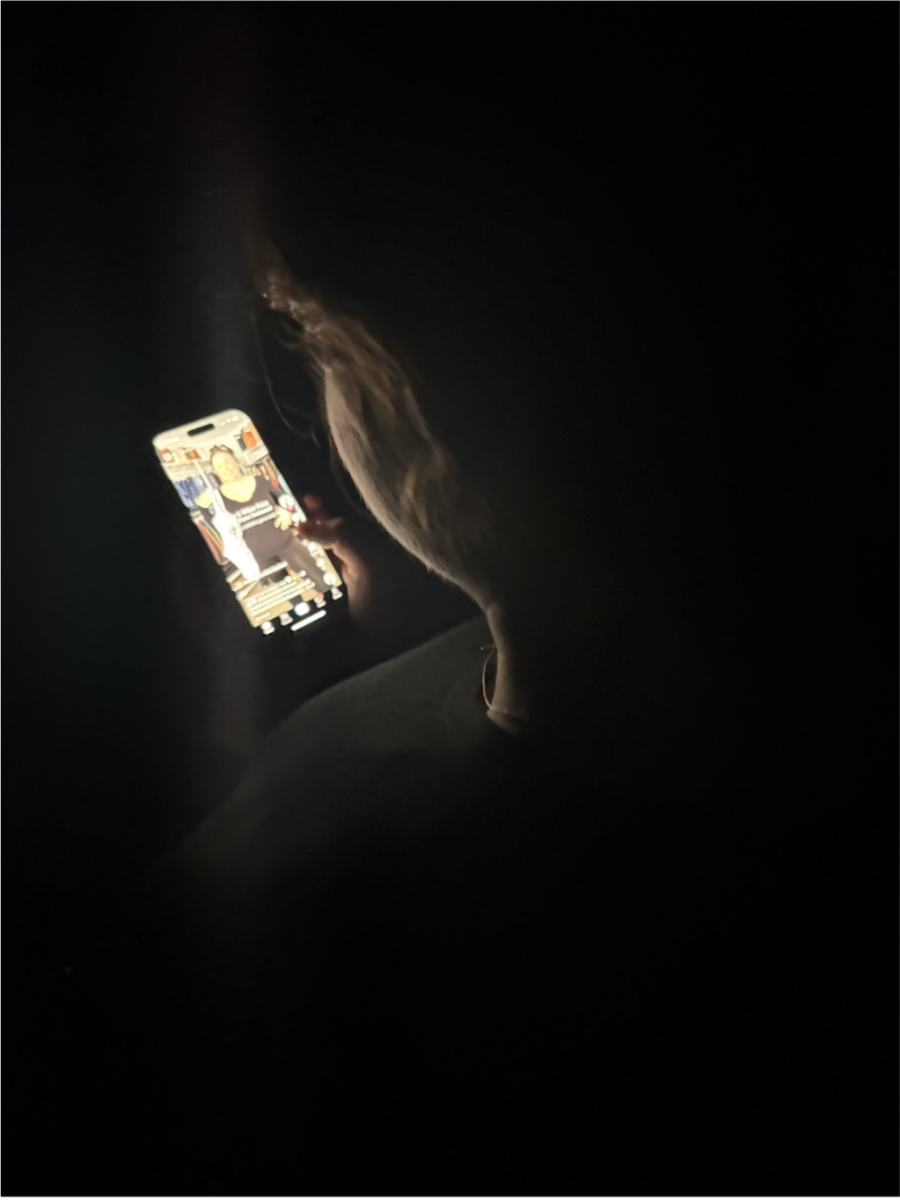“What’s your screen time?” is a question teens know all too well. The meddling questions parents bombard their kids with seem never-ending, “What are you doing? Who are you talking to? What’s so funny?” The tension between teens and adults over phone usage constantly causes turbulence and raises questions about technology.
Prior to this year, students had been able to use their phones freely during generals period (GP), at lunch, or even in the classroom environment. There were few restrictions on holding it, texting, or using the phone for entertainment or academic purposes.
However, this year, changes were made to the phone policy. Phone pockets are being used in many classes to keep phones stowed away during the period, and students caught with a phone during class face escalating consequences.
Arlington Public Schools (APS) is enacting this policy to ensure focus during instructive periods. Some people think this policy is good for academics, while others see it as a safety concern.
To consider the phone policy from different perspectives, parents, teachers and students were interviewed about their views.
Amira Salehdirgham is an APS parent with students at the school.
“I feel like it takes away from us parents’ comfort to make sure our kids are okay,” Salehdirgham said, suggesting the phone policy is causing parents to worry about safety.
She takes this concern about the phone policy further by referring to past violence in other schools.
“I don’t agree with it at all, and it’s making me not feel comfortable or safe for my children to be in the schools, to be honest with you, with everything that’s going on nowadays, with the violence increasing and all that,” Saledirgham said, “It puts me in an uneasy feeling.”
The new phone policy makes it more difficult for students to contact parents or any one else via phone during class time, which makes up the majority of the day. After recent violence, like the Apalachee school shooting in Georgia that happened earlier in the fall, school communities are unsettled. Parents want to ensure they can reach their children in an emergency. As Saledirgham said, it may make parents uneasy.
She also points out that a cell phone counts as personal property, and high school students have reached an age where they’re mature enough to control their own phone usage.
“I feel like it’s a personal property, just like your clothes are a personal property of yours,” she said.
While Salehdirgham opposes the policy, social studies teacher Daniel Moses sees the phone policy as benefiting the school atmosphere.
“For me, it’s been really beneficial,” Moses said.“In previous years, I would tell students, just keep your phone put away, but they never really would.”
Moses explains that, as a teacher, it was harder to get points across and cover material when students were distracted by their phones. “I’ve seen a positive benefit in general: in class [and] kids being able to focus more,” Moses said.
From a teacher’s point of view, kids being focused and present makes teaching easier and more effective. Moses sees the phone limitations as a helpful and moderate policy.
“I really think that’s like a healthy sort of middle ground,” he said.
Mio Hitzig, a freshman at the school, has a very neutral perspective on the policy.
“I think so far, it’s okay, because I can be on my phone during lunch and passing periods, and I’m fine with that,” Hitzig said.
In response to the safety concerns that phone limitations raise, Hitzig speaks on the differing methods of handling the phones.
“In the pouches, I’m pretty sure that’s easily accessible, so I’m not too concerned about it,” Hitzig said.
This is because while the phones are off and away in the pockets, they are still in the classroom and accessible to students. . This could be important if a student had an emergency or an unusual event happened during the school day.
Hitzig views the current pouches as not a big deal, but she sees the new Yondr pouches other APS schools are implementing as extreme and a safety concern.
“You would need a magnet to open it, and I just feel that if [there] was a lockdown, or a fire, it would be hard to [access phones],” Hitzig said.
The APS phone policy has created new challenges and conflict between those with differing views in the community. Conversations like these are fairly recent, and the implications of the phone policy are gray.
Saledirgham says, “If it costs any disturbance, then that doesn’t mean punish everyone else for one or two children’s mistake that they can’t hold their phone.,”
Is this policy a safety concern, or is it a happy medium that will benefit all members of the school community?


















